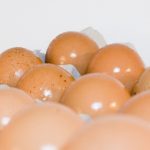Over Eating
Articles, Videos and treatment options for Over Eating
A basic definition of overeating is, simply put, excessive eating—consuming more calories than necessary and generally consuming in large portions that cause a person to feel uncomfortably full. It is not a specific diagnosis; it may refer to a discrete incident of eating too much such as during holidays, celebrations, or while on vacation; or it may refer to habitual excessive eating.
An overview can be found here. Scroll down to see the latest articles and videos.

You may want to stand up while you read this. According to a recent survey by Wonderful Pistachios, women in their first year at a desk job may put on several pounds – with average weight gain clocking in at about 11 pounds. Good intentions fail The study found that the office is a disaster …
Read More

It’s long been known that sugar is a direct culprit when it comes to weight gain. But now a new study suggests the reason for that may be different than we thought. Yes, eating sugar causes changes in blood sugar that can trigger weight fluctuations–not to mention that it’s loaded with calories–but it may also …
Read More

You know the drill: You go out to a restaurant with every intention of eating sensibly but end up overdoing it anyway. It’s hard enough to avoid temptation at home, but dining out carries with it a whole new set of challenges. Here are some ways to conquer overeating when you’re at a restaurant. Eat …
Read More

A new Cornell study suggests that making exercise enjoyable can help you eat less afterwards. In one experiment, researchers led 56 adults on a one-mile walk, telling some that the walk would be an “exercise” walk and others that it would be a “scenic” walk. Participants who were told that the walk would be an …
Read More

The habit of overeating, when sustained over a long period of time, could damage pathways in the hypothalamus – a part of the brain that regulates metabolism. A new study published in the Journal of Clinical Investigation and the British Journal of Nutrition found that a high consumption of fat and sugar can damage these …
Read More

Encouraging babies to eat before bed or to finish a bottle might be setting them up for bad habits later in life, a new study suggests. Researchers at Brigham Young University found that obesity rates in babies at 24 months could be traced back to feeding habits learned in the first few months of life. …
Read More

Individuals who opt for a protein-rich breakfast get a boost of pleasure hormone dopamine, which can lead to fewer cravings later in the day, reports a new study in the Nutrition Journal. Researchers from the University of Missouri found that different breakfasts could impact an individual’s levels of dopamine, which moderates impulses and reward when …
Read More

Research has shown that eating while distracted – whether it’s watching TV, talking on the phone or flipping through a magazine – can lead to eating more and, ultimately, weight gain. Binge eaters know this problem all too well, but a new study suggests there might be a way to eat less – even when …
Read More

If children could be taught to focus their attention selectively, they might learn to curb patterns of overeating or consuming unhealthy foods, according to new research from the University of California, San Diego School of Medicine. Behavioral responses to food cues, the study found, can cause the brain to become wired to seek and expect …
Read More

Binge eating has often been linked to disturbed sleep patterns, but new research explains just how important diet is when it comes to getting a healthy snooze every night. A study from the Perelman School of Medicine at the University of Pennsylvania found that people with distinct eating habits also had specific sleeping patterns. Short …
Read More
 Eating Disorder Self Test. Take the EAT-26 self test to see if you might have eating disorder symptoms that might require professional evaluation. All answers are confidential.
Eating Disorder Self Test. Take the EAT-26 self test to see if you might have eating disorder symptoms that might require professional evaluation. All answers are confidential.
Find a Treatment Facility Near You
Click on a state below to find eating disorder treatment options that could be right for you.










 Eating Disorder Self Test. Take the EAT-26 self test to see if you might have eating disorder symptoms that might require professional evaluation. All answers are confidential.
Eating Disorder Self Test. Take the EAT-26 self test to see if you might have eating disorder symptoms that might require professional evaluation. All answers are confidential.